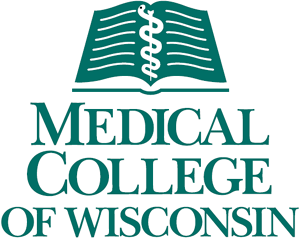Position Description:
Every day, in ways both big and small, the Medical College of Wisconsin (MCW) is impacting lives for the better. MCW ... changemaking for a healthier Wisconsin
A Postdoctoral Researcher position is available in Max McGee Diabetes Research Center | Medical College of Wisconsin as a part of Girdhar lab. Dr. Girdhar's research is centered on understanding the environmental factors that contribute to Type 1 Diabetes (T1D) and exploring therapeutic interventions aimed at modifying these factors. A major focus of the lab is investigating the relationship between the immune system and microbial agents, with the goal of uncovering novel mechanisms that influence disease progression and potential therapeutic targets. The postdoctoral researcher will contribute to ongoing studies that examine how microbial agents affect beta cell function and modulate the immune system. This research includes working with both human and mouse models to analyze immune responses, microbial influences, and the potential for engineered probiotics to improve T1D outcomes. The ideal candidate should have a PhD and expertise in immunology, microbiology, or synthetic biology, with a particular focus on microbial-immune system interactions.[KG1] Purpose According to the National Institute of Health (NIH) and the National Science Foundation (NSF), a postdoc is an individual who has received a doctoral degree (or equivalent) and is engaged in a temporary and defined period of mentored advanced research training to enhance the professional skills and research independence needed to pursue his or her chosen career path. In addition, according to the National Postdoc Association (NPA), Postdoctoral appointees can pursue basic, clinical or translational projects so long as their primary effort is devoted toward their own scholarship. Postdocs are essential to the scholarly mission of the mentor and host institution, and thus are expected to have the freedom to publish the results of their scholarship. Responsibilities:
- Plan, design and execute complex research studies, procedures and protocols.
- Participate in discovery projects.
- Coordinate research study activities; lead and manage projects.
- Oversee organization, synthesis and analysis of data and findings.
- Prepare scientific reports, outcome findings and scientific manuscripts.
- Participate in meetings with principle investigator and research staff in which you will evaluate/interpret the validity of data, develop methodologies, and design and evaluate lab procedures.
- Maintain supplies, may require negotiation with vendors, and track purchase orders.
- May oversee the work of laboratory personnel including training and development as well as daily work direction, delegation and establishing priorities.[KG2]
Development and Growth Plan (Year 1):
- Q1-Q2 Milestone: Complete laboratory safety and required institutional training, Develop an IDP, Master key experimental techniques, begin preliminary experiments for Projects, and attend weekly lab meetings and division seminars,
- Q3-Q4 Milestone: Lead Projects experiments independently, attend grant writing workshop, present initial findings at lab meeting, submit abstract for a conference, write and submit in preprint, and plan independent ideas.
- Career Development Milestones: 2-first-author papers in first 24 months, Present at 1 national conferences in first year, Complete grant writing and bioinformatics workshops, Develop independent research proposal by month 18 and Network with potential collaborators and mentors
Mentorship Structure Includes:
- Weekly one-on-one meetings and weekly data/Journal group meetings
- Monthly progress evaluations
- Quarterly career development discussions
- Semi-annual Individual Development Plan (IDP) review
- Opportunities for shadowing and networking
- Ad-hoc mentorship sessions
- Teaching and Training Opportunities
Knowledge - Skills - Abilities
- Strong background in immunology, microbiology, or synthetic biology, with an understanding of the immune system and its interaction with microbial agents.
- Experience with basic molecular biology methods including, aerobic/anaerobic microbial culture, microbial genetic manipulation, DNA, RNA and protein isolations from tissues and cells, PCR, qPCR and Western Blot, and confocal microscopy.
- Experience working with mice handling, tissue harvest, i.p. i.v., s.c. injections, oral dosing and primary cells isolations.
- Experience in GSIS, ipGTT, ipITT, primary beta cells culture, IHC.
- Expertise in DNA/RNA library preparation, microbiome analysis, and immune assays (e.g., flow cytometry, ELISA, ELISPOT).
- Proficiency in handling large dataset, data analysis and bioinformatics tools for microbiome and immune data is a plus.
- Strong communication skills, both written and oral, for presenting research findings and contributing to collaborative efforts.
- Ability to work independently as well as within a team to meet research objectives.
Preferred Schedule:
Full-time role with expectations for coverage during core business hours and flexibility required as necessary to accommodate business needs.
Position Requirements:
Minimum Qualifications:
Minimum education: PhD in a scientific field or MD
Minimum experience: 0 years #LI-NK1 For a full list of positions see: www.mcw.edu/careers
For a brief overview of our benefits see: https://www.mcw.edu/departments/human-resources/benefits
Eastern Wisconsin is a vibrant, diverse metropolitan area. MCW is intent on attracting, developing, and retaining a diverse workforce and faculty body that reflects the community we serve. We value diversity of backgrounds, experience, thought, and perspectives to advance excellence in science and medicine. MCW is a welcoming campus community with a strong culture of collaboration, partnership, and engagement with our surrounding community. For more information, please visit our institutional website at https://www.mcw.edu/departments/office-of-diversity-and-inclusion.
MCW as an Equal Opportunity Employer and Commitment to Non-Discrimination
The Medical College of Wisconsin (MCW) is an Equal Opportunity Employer. We are committed to fostering a diverse community of outstanding faculty, staff, and students, as well as ensuring equal educational opportunity, employment, and access to services, programs, and activities, without regard to an individual's race, color, national origin, religion, age, disability, sex, gender identity/expression, sexual orientation, marital status, pregnancy, predisposing genetic characteristic, or military status. Employees, students, applicants or other members of the MCW community (including but not limited to vendors, visitors, and guests) may not be subjected to harassment that is prohibited by law or treated adversely or retaliated against based upon a protected characteristic.
.
|
 Medical College of Wisconsin
Medical College of Wisconsin
 Mar 28, 2025
Mar 28, 2025 

